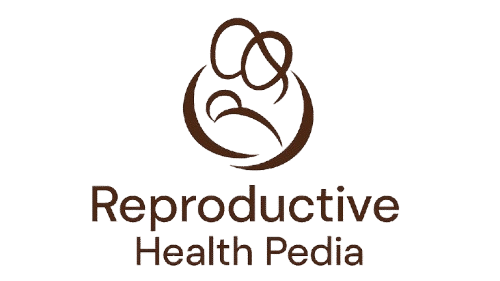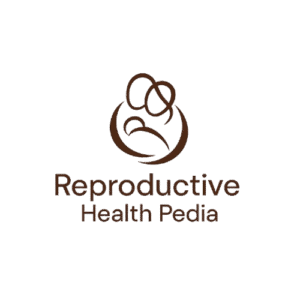
Misinformation — defined as misleading or false health information — is increasingly recognized as a threat to achieving optimal health outcomes. As more patients turn to the internet for health advice, they frequently encounter information that contradicts evidence-based guidance from healthcare professionals. Reproductive health is often surrounded by misinformation, yet it has not received the same level of research focus or public awareness as issues like COVID-19 and vaccination. For instance, a survey revealed that more than half of endometriosis patients came to believe the inaccurate online claim that the condition makes pregnancy impossible. Despite the American College of Obstetricians and Gynecologists (ACOG) endorsing intrauterine devices (IUDs) as a safe and first-line contraceptive choice for adolescents, a significant knowledge gap persists among healthcare providers. Research reveals that nearly one-third of healthcare professionals mistakenly believe IUDs are unsuitable for women who have not given birth yet.
Why should we be concerned about such reproductive health myths? The answer is alarmingly clear: Misinformation in reproductive health carries serious consequences. In some cases, inaccurate claims have even influenced policy decisions, leading to restrictions on reproductive rights and putting patient safety at risk. Multiple factors fuel the spread of reproductive health misinformation. Political and ideological groups often use it to advance agendas — for instance, some crisis pregnancy centers provide misleading claims about abortion. Many women, already distrustful of the healthcare system, become more vulnerable to such misinformation. Although the internet has opened space for dialogue, digital platforms have also magnified the reach and influence of misleading content.
This blog is dedicated to raising awareness about online reproductive health misinformation and helping readers distinguish between myths and evidence-based facts.
The Digital Network of Misinformation
How are researchers looking for health misinformation? Our analysis of 47 studies provides a clear map: websites were the most scrutinized source (36%). On social media, TikTok was the most studied (15%), followed by Twitter (13%), YouTube (11%), and Facebook (9%), not far behind. This analysis also reveals that misinformation isn’t limited to the big platforms we all recognize. It also finds its way into smaller corners of the internet—on Instagram, Quora, Pinterest, and in countless blogs and forums where people share and debate various ideas. More recently, researchers have begun examining the newly developed tools in the digital world, including AI chatbots such as ChatGPT, DeepSeek, and Google Gemini, to understand how these emerging tools might shape the spread of health information. You may be surprised to learn that the analysis uncovered 112 different misleading narratives circulating across digital platforms.
In our review, we found that most misleading claims about reproductive health revolve around these major areas: contraception, abortion, fertility, breast cancer, endometriosis, maternal health, and chronic disease. Any remaining claims were grouped into an “other” category.
Contraception and Abortion: Separating Fact from Fiction
Have you seen posts claiming birth control is dangerous? This is a dominant theme in reproductive health misinformation. Online content frequently exaggerates risks, pushing false narratives that contraception causes weight gain, mental health issues, or infertility. Adverse side effects—whether real or imagined—are highlighted far more than the proven benefits, creating fear and confusion for those seeking accurate reproductive health information. If you’ve scrolled through social media, you’ve likely seen this narrative: some online stories deliberately describe contraception as ‘unnatural’ to spread the idea that it is harmful and unsafe, playing on fears rather than presenting scientific facts. Many misleading claims about contraception either targeted hormonal methods in general or singled out specific options, especially long-acting reversible contraceptives (LARCs) like intrauterine devices (IUDs). At the same time, YouTube content often promoted menstrual cycle-tracking as a so-called ‘natural’ alternative, without mentioning its critical limitations in effectiveness. False claims link abortion to cancer, infertility, and mental health issues—despite no scientific proof. Crisis pregnancy centers and social media often push these myths, along with the unproven idea of ‘abortion pill reversal. The reliability of AI for health advice is now in question. Researchers also found that AI chatbots spread various false claims about how to manage a medication abortion.
Fertility Myths: Promising More Than Science Supports
Misinformation around fertility often exaggerates the effectiveness of different interventions—whether evidence-based or not—for testing or improving fertility. On TikTok, nearly 90% of videos about in vitro fertilization (IVF) showed successful live births—far higher than the actual success rates in the real world. Many websites promoting egg freezing (oocyte cryopreservation) overlook important details—such as the need for multiple retrieval cycles or the fact that frozen eggs don’t always result in a successful pregnancy. Similarly, one study found that sites selling at-home AMH (anti-Müllerian hormone) tests often made unsupported claims about their ability to predict fertility or the timing of menopause.
Myths That Mislead About Breast Cancer
The research revealed breast cancer as a significant focus of misinformation, particularly on X (formerly Twitter), where posts framed unsupported claims about mammography risks and promoted unproven “natural” screening methods—separate from authentic medical discussions about screening guidelines. Online posts often promoted alternative breast cancer treatments—such as special diets and supplements—either as add-ons to medical care or, more concerningly, as replacements for it.
Vaccine Myths That Mislead Reproductive Health
Many studies have highlighted the spread of misinformation about HPV vaccines, often exaggerating unproven risks such as increased sexual activity or even death. Similarly, online discussions about COVID-19 vaccines frequently promoted false claims linking them to infertility and miscarriage. Misinformation about vaccines during pregnancy often highlighted the unfounded risk of miscarriage. Such narratives worked to erode trust in maternal vaccine recommendations from the FDA, CDC, and other health authorities.
Pregnancy Myths That Put Maternal Health at Risk
Misleading narratives about maternal health often focus on pregnancy, miscarriage, childbirth, and breastfeeding. Much of this content promoted alternative interventions that directly conflicted with established medical guidelines. On social media, some videos advise against using injectable oxytocin and epidural pain relief during labor, instead promoting unauthentic herbal supplements. Other narratives went further, accusing pharmaceutical companies and healthcare professionals of being untrustworthy about psychotropic medications and urging pregnant women to ignore their guidance.
From PCOS to POI: Online Claims vs. Medical Reality
Several studies analyzed online discussions around endometriosis, polycystic ovarian syndrome (PCOS), and premature ovarian insufficiency (POI). Across all three conditions, many posts promoted unauthentic ‘natural’ solutions—such as special diets or herbal remedies—as ways to prevent, treat, or even cure them. In the case of endometriosis, misleading narratives went a step further, fostering mistrust in healthcare providers and falsely claiming that pregnancy is impossible with the condition.
In summary, research shows that false and misleading narratives around reproductive health are widespread. Healthcare providers should stay informed about these claims so they can guide patients with accurate, evidence-based information and help them make confident, well-informed decisions.
REFERENCES
1. Southwell BG, Brennen JSB, Paquin R, Boudewyns V, Zeng J. Definingand Measuring Scientific Misinformation. Ann Am Acad Pol Soc Sci.2022;700(1):98-111. https:// doi. org/ 10. 1177/ 00027 16222 10847 09
2. Wang Y, McKee M, Torbica A, Stuckler D. Systematic Literature Review on the Spread of Health-related Misinformation on Social Media.Soc Sci Med 1982. 2019;240:112552. https:// doi. org/ 10. 1016/j. socscimed. 2019. 112552
3. Zhao S, Hu S, Zhou X, et al. The Prevalence, Features, Influencing Factors, and Solutions for COVID-19 Vaccine Misinformation: Systematic Review. JMIR Public Health Surveill. 2023;9(1):e40201. https:// doi.org/ 10. 2196/ 40201
4. Arena A, Degli Esposti E, Orsini B, et al. The social media effect: the impact of fake news on women affected by endometriosis. A prospective observational study. Eur J Obstet Gynecol Reprod Biol. 2022;274:101-105. https:// doi. org/ 10. 1016/j. ejogrb. 2022. 05. 020
5. Tyler CP, Whiteman MK, Zapata LB, Curtis KM, Hillis SD, Marchbanks PA. Health care provider attitudes and practices related to intrauterine devices for nulliparous women. Obstet Gynecol. 2012;119(4):762- 771. https:// doi. org/ 10. 1097/ AOG. 0b013 e3182 4aca39
6. Committee on Adolescent Health Care Long-Acting Reversible Contraception Working Group, The American College of Obstetricians and Gynecologists. Committee opinion no. 539: adolescents and long-acting reversible contraception: implants and intrauterine devices. Obstet Gynecol. 2012;120(4):983-988. https:// doi. org/ 10. 1097/ AOG. 0b013e3182 723b7d
7. Esacove AW. Dialogic Framing: The Framing/Counterframing of “Partial-Birth” Abortion. Sociol Inq. 2004;74(1):70-101. https:// doi. org/10. 1111/j. 1475- 682X. 2004. 00080.x
8. Weitz TA, Moore K, Gordon R, Adler N. You say “regret” and I say “relief”: a need to break the polemic about abortion. Contraception. 2008;78(2):87-89. https:// doi. org/ 10. 1016/j. contr acept ion. 2008. 04. 116
9. Tanne JH. Proposed Ohio bill asks doctors to re-implant ectopic pregnancies or face “abortion murder” charges. BMJ. 2019;367:l6818. https:// doi. org/ 10. 1136/ bmj. l6818
10. Watson A, Yarger J, Sedlander E, et al. Concern that contraception affects future fertility: How common is this concern among young people and does it stop them from using contraception? Contracept X. 2023;5:100103. https:// doi. org/ 10. 1016/j. conx. 2023. 100103

